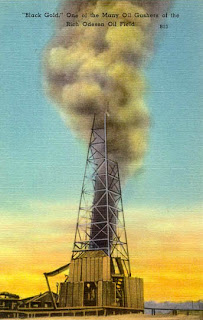Prime Minister Stephen Harper took his first tour of northern Alberta's multibillion-dollar oil sands bonanza yesterday, then heard first-hand about all the problems the massive projects are causing. Harper and his entourage flew over the massive mining excavations by helicopter, then climbed aboard a three-storey-high, heavy hauler earth-moving machine. He then shook hands with Syncrude Canada employees.
Back in Fort McMurray, community leaders met with the Prime Minister in a closed-door invitation-only meeting to tell him about the flip side of developing Canada's energy riches.
"We need housing, we need better roads and we need better medical services," said business owner Francis Jean, who is also the mother of Brian Jean, the Conservative MP for Fort McMurray-Athabasca.
"People are paying exorbitant rents, making it difficult for families to move to here."
Other community leaders were equally blunt.
Melissa Blake, mayor of Wood Buffalo, the municipality that includes Fort McMurray, said it is great to have the Prime Minister visit an area that will provide much of Canada's economic oomph over the next decade.
Noting many of the region's problems fall within Alberta's jurisdiction, Blake said she hopes the federal government will contribute money to help the community build road, water, sewer, health and other infrastructure projects it needs to flourish.
The population of the Fort McMurray area has doubled to 90,000 people since 1999 and continues to grow quickly.
"It is the challenge of having a population that has doubled and is projected to triple within 15 years," Blake said.
"The infrastructure is simply not keeping pace under the regular funding mechanisms. We are looking at the possibility of sharing costs with other levels of government – be it federal or provincial."
Last week, media reported people in the area found notices on their doors warning of impending rent hikes exceeding $1,000 a month.
Harper would not speak to the media about the meeting, his tour of the oil sands or any other issue.
Mike Sadava, The Edmonton Journal
Published: 1:35 amFORT MCMURRAY - Stephen Harper may have been the first prime minister to visit Fort McMurray in more than a decade, but he made no promises to help this over-stressed city deal with its booming economy.
During his half-day tour of the area, Harper flew over the oilsands in a helicopter, toured part of the vast Syncrude site in a three-storey high "heavy hauler," and visited employees at the Syncrude control centre before meeting with oilsands executives and other business and community leaders.
Fort McMurray is one of the mostapidly growing cities in Canada, expected to hit a population of 100,000 within five years.
But the growth has come at a cost: extremely high house prices, rent increases of more than $1,000 in the case of one apartment complex, and a two-lane highway from the south that is clogged with slow-moving, oversized loads of prefabricated parts for the oilsands.
Harper did not talk to the media after the "round-table" meeting, but others
attending the meeting said it produced no specific help for the "energy superpower," as the prime minister has referred to the area.
Wood Buffalo Mayor Melissa Blake said consistent comments from those in the room clearly sent Harper the message that the boom has brought many challenges.
While many jurisdictions across Canada face labour and other growth pressures, "the order of magnitude is different here," Blake said the prime minister was told.
The meeting included a discussion of different levels of government working together, as well as the possibility of so-called P3 partnerships between business and government.
Blake was upbeat despite the lack of specific promises.
"The first step is awareness, and we certainly had that."
Athabasca MP Brian Jean said the provincial royalty review was brought up in the discussion. Harper pointed to last week's tax-cutting, mini-budget fiscal update and noted "that we brought corporations pretty well back to where they were before the royalty review."
"It was great news for corporations and great news for Canadians at every level of paying taxes," Jean said.
Monday marked the first time that Harper has visited Fort McMurray, at least as prime minister, and is the first time a prime minister visited the area since Jean Chretien's trip there in 1996.
Alain Moore, spokesman for Syncrude, said there was a lot of talk about the contributions of the oilsands to Canada's economy during his visit to the com-pany's site.
Many workers came out of their offices to greet Harper when he visited Syncrude's control centre.
"A number of Syncrude employees were thrilled and honoured to have a person of that national stature visiting them," Moore said.
After his visit to the northern Alberta city, Harper was flown to Castlegar, B.C.. where he was to attend an evening meeting with Tory party members.





